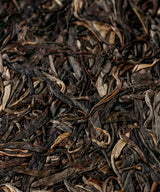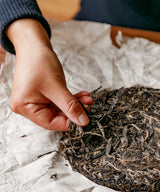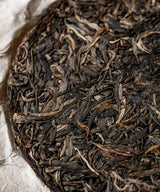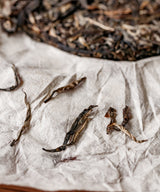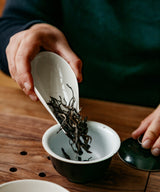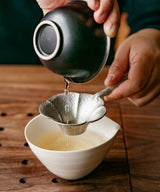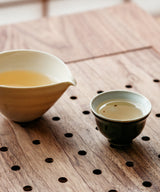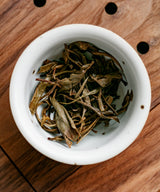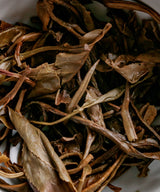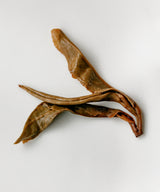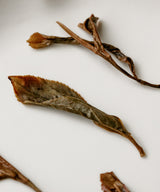Secret Realm "Mijing"
秘境古树生普洱2017
Harvest
April 2017
Origin
Lincang, Yunnan
The name of this tea translates to “Secret realm” or “Secret,uncharted place.” This name could apply to both the place this tea comes from and the tea itself: it is no longer possible to acquire the 2017 harvest of this pu’erh, and the following harvests are available in such low quantities, their cost is quite prohibitive.
We acquired this tea from Ahang, who is of Dai ancestry and indigenous to the Lincang region of Yunnan. Ahang is one of the few people who could have shared this tea with us, as pu’erhs like this one are only directly accessible to the local indigenous people, and are rarely shared with those outside their communities.
When we asked Ahang which village, exactly, this tea came from, he grinned and responded simply, “Lincang.” The Lincang area includes several prestigious and highly sought-after pu’erh producing villages, like Bingdao, Xigui, and Mangfei, and we admired that Ahang would not direct us towards the exact home of this “Secret Realm” amongst them.
He told us that, a few years ago, he came across a dozen ancient tea trees, at least 500 years old, and that he immediately fell in love with them. They are towering tea trees - their huge canopies extended far from their trunks, and cast incredible shadows on the brush below them. They expressed such strength and intelligence, Ahang knew their leaves would yield incredible tea.
Since this encounter the leaves from these dozen ancient tea trees have only been harvested once per year, during the first Spring harvest. Their pu’erh cake is what is known as “pure material,” meaning it is not, like most high-value pu’erhs, slightly blended with other, younger tea leaves to reduce the cost of each cake. Instead, this tea is entirely made up of ancient leaves.
As you might imagine, this pu’erh has exceptional energy, complexity, and “Qi.” It will last for more than 20 infusions, and maintains a soft, weighted, medicinal quality that sinks deep into our person throughout. Initially, its taste references the wild jungles and mountains it comes from: the taproots of these ancient tea trees extend so deep into the earth, the minerals they pull up and deposit in their leaves produce a taste that is strong and wild – like an entire forest and all of its seasons, bound together. It is a rare experience for most of us, to encounter this leaf-flavour. Later infusions are less intense, drawing out the sweetness of rock sugar, earth, and wild honey.
There are teas that support complex states, the handling of unanswerable questions, and that can meet us when we find ourselves in uncharted places of our own. This a tea of this nature – it isn’t for everyday, but when it’s right, you’ll be so grateful for its company there, in the unknown.
. . .
Brewing guide
| Tea | 4 g |
| Temperature |
100°C |
| Water | 120 ml |
| Steep time | 10 - 60 sec |
| No. of infusions | 10+ |

